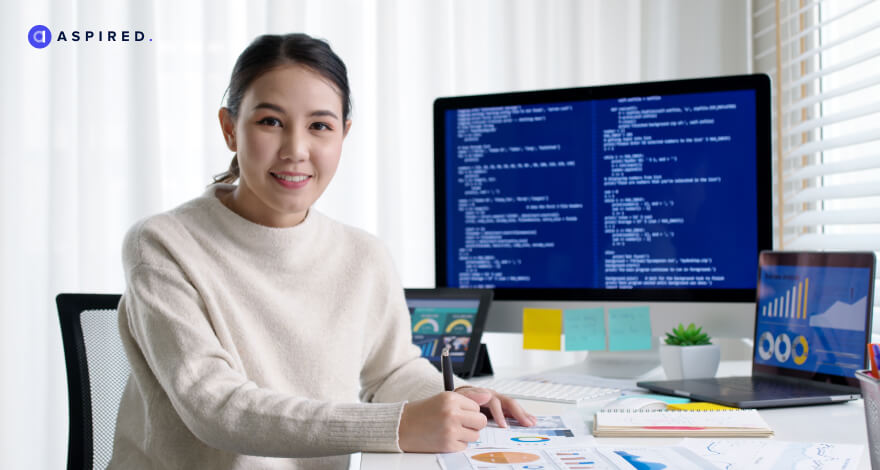"Our pasts have the potential to shape our futures" is something we’ve all heard of growing up, but does it actually make sense? Do our experiences truly define our personalities, or is there something more to it? Do our accomplishments define how much we have learnt from our past experiences, and does learning a new skill actually increase our IQ? The one-word answer to all the above questions is Experiential Intelligence.
Experiential Intelligence, or the ability to apply learned experiences to new situations, can greatly enhance our lives. In today's fast-paced and ever-changing world, experiential Intelligence has become an essential tool for individuals to be successful in their personal and professional lives. Several studies suggest that employees with high levels of experiential Intelligence are more likely to innovate and create value in the workplace. But how can one harness their experiential Intelligence? What exactly does experiential Intelligence mean? And how can we make the most out of it? This write-up will answer all these questions.
What is Experiential Intelligence?
Experiential Intelligence refers to the ability to harness your past experiences and apply them to new situations to create desired future results. It's a type of Intelligence that enables you to unbound yourself from your past while carrying the key lessons learned to apply them in the present and future.
This Intelligence is not just limited to the realm of personal experience but also includes knowledge obtained from books, media, and other sources. It includes recognizing patterns, making connections, and transferring knowledge across situations. From a business's point-of-view, experiential Intelligence can help individuals provide valuable insights into customer behavior, foster innovation and creativity, and enable companies to make informed decisions.
Harnessing your experiential Intelligence can significantly impact your personal and professional life. Following are the ways in how experiential Intelligence can play a crucial role in building desired future:
- Problem-solving: Experiential Intelligence helps us identify and solve problems effectively, making it easier to overcome obstacles in our path towards our desired tomorrow.
- Flexibility: With the ability to adapt to change, we can be more resilient in the face of challenges, making it easier to achieve our goals.
- Learning from experience: By reflecting on our experiences, we can learn from our successes and failures, which can help us make better decisions in the future.
- Improved decision-making: Experiential Intelligence can help us weigh the potential outcomes of different actions, allowing us to make informed decisions that help us achieve desired outcomes.
3 Things That Can Help You Harness Your Experiential Intelligence
A Sharpened Mindset
Our mindsets, shaped by our attitudes and beliefs, can either limit or enhance our potential. For Example, when an individual says, "I can't fail, or people will judge me", it ultimately causes individuals to shy away from taking risks and being innovative.
By tapping into our experiential intelligence, we can uncover self-limiting beliefs and replace them with self-expanding beliefs, leading to a more innovative mindset and greater potential for success.
So, from the previous Example: "I can't afford to fail" becomes "I'm comfortable with failure because I learn from it, and it's necessary for innovation", thus pushing individuals to be more open to taking risks and being innovative, leading to potential growth and success.
Developed Abilities
Abilities combine your knowledge, skills, and experiences that allow you to apply what you know effectively. They represent specific competencies that connect your mindsets with your know-how, leading to behaviours that enhance your skills and ultimately convert into great results.
For Example, all great authors have good writing skills. So, what distinguishes the great from the rest is their ability related to personal discipline when creating their craft. This ability can either tie up with self-belief and result in phenomenal focus and persistence in writing a book. Or it can combine with a mindset and help set up a specific behaviour that comes into play in choosing the right words to convey the right meaning.
Similarly, great business minds and innovators tend to have a great degree of tolerance in times of uncertainty and the ability to bounce back from holdups. This is called "business acumen". Experiential Intelligence can help individuals broaden their approach to how they react to different contexts. In short, your abilities define how you approach tasks and are influenced by your beliefs and attitudes, which guide what you see as possible and desirable.
Attained Know-How
Know-how refers to the combination of knowledge and skills a person possesses. Your acquired knowledge can be divided into two types formal and informal. Formal knowledge is obtained through structured learning methods such as schools, workshops, and educational materials.
Informal or tacit knowledge, on the other hand, is learned through experience and practice. It often results from repeating a task or being around someone with the knowledge, which is then absorbed over time. Combining attained know-how with experiential Intelligence can work wonders.
An example of know-how combined with experiential Intelligence can be seen in a chef who has honed their cooking skills through years of experience and experimentation. This allows them to follow recipes and use their intuition and past experiences to create unique and delicious dishes. As a result, they can consistently create outstanding dishes and lead a successful kitchen. Similarly, in the field of education, it is called "Craft knowledge".
Conclusion
Experiential intelligence comprises mindsets, abilities, and know-how, working together as building blocks to shape our thoughts, behaviours, and experiences. Know-how is the foundation, providing the substantial knowledge and skills we possess. Abilities bridge the gap between mindsets and know-how, representing broader approaches to applying what we know. Lastly, mindsets are the most abstract of the three components, influencing our perspectives and beliefs.
By embracing novelty and challenge, reflecting on our experiences, and practicing mindfulness, we can develop our experiential Intelligence and become more effective in all aspects of life. So, embrace the power of experience and harness your experiential Intelligence today.

 Clients
Clients
 Processes
Processes
 Blog
Blog










